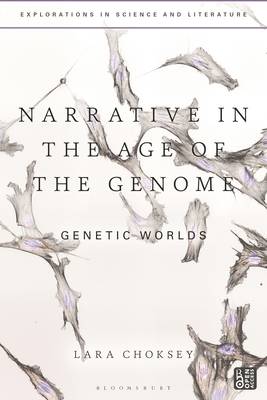
Bedankt voor het vertrouwen het afgelopen jaar! Om jou te bedanken bieden we GRATIS verzending (in België) aan op alles gedurende de hele maand januari.
- Afhalen na 1 uur in een winkel met voorraad
- In januari gratis thuislevering in België
- Ruim aanbod met 7 miljoen producten
Bedankt voor het vertrouwen het afgelopen jaar! Om jou te bedanken bieden we GRATIS verzending (in België) aan op alles gedurende de hele maand januari.
- Afhalen na 1 uur in een winkel met voorraad
- In januari gratis thuislevering in België
- Ruim aanbod met 7 miljoen producten
Zoeken
Omschrijving
Shortlisted for the 2021 BSLS Book Prize
Genomic technologies have had a profound impact on understandings of what it means to be human and our links to the world we inhabit, and on practices of inhabiting the world. This open access book considers this impact across a range of literary forms, cultural practices, and political imaginaries, and argues that new descriptions of biological value introduced through practices of genomic sequencing from the late 1970s registered a broader crisis of narrative form. Examining a wide range of texts by Doris Lessing, Samuel Delany, Boris and Arkady Strugatsky, Kir Bulychev, Kazuo Ishiguro, Saidiya Hartman, Yaa Gyasi, Svetlana Alexievich, and Jeff VanderMeer, Narrative in the Age of the Genomecasts new light on the intersections of genomics with politics of racism, sexuality, labour and gender, neoliberal economics and environmental crisis.
The eBook editions of this book are available open access under a CC BY-NC-ND 4.0 licence on bloomsburycollections.com. Open access was funded by The Wellcome Trust
Genomic technologies have had a profound impact on understandings of what it means to be human and our links to the world we inhabit, and on practices of inhabiting the world. This open access book considers this impact across a range of literary forms, cultural practices, and political imaginaries, and argues that new descriptions of biological value introduced through practices of genomic sequencing from the late 1970s registered a broader crisis of narrative form. Examining a wide range of texts by Doris Lessing, Samuel Delany, Boris and Arkady Strugatsky, Kir Bulychev, Kazuo Ishiguro, Saidiya Hartman, Yaa Gyasi, Svetlana Alexievich, and Jeff VanderMeer, Narrative in the Age of the Genomecasts new light on the intersections of genomics with politics of racism, sexuality, labour and gender, neoliberal economics and environmental crisis.
The eBook editions of this book are available open access under a CC BY-NC-ND 4.0 licence on bloomsburycollections.com. Open access was funded by The Wellcome Trust
Specificaties
Betrokkenen
- Auteur(s):
- Uitgeverij:
Inhoud
- Aantal bladzijden:
- 232
- Taal:
- Engels
- Reeks:
Eigenschappen
- Productcode (EAN):
- 9781350213845
- Verschijningsdatum:
- 25/08/2022
- Uitvoering:
- Paperback
- Formaat:
- Trade paperback (VS)
- Afmetingen:
- 156 mm x 234 mm
- Gewicht:
- 326 g

Alleen bij Standaard Boekhandel
+ 138 punten op je klantenkaart van Standaard Boekhandel
Beoordelingen
We publiceren alleen reviews die voldoen aan de voorwaarden voor reviews. Bekijk onze voorwaarden voor reviews.









